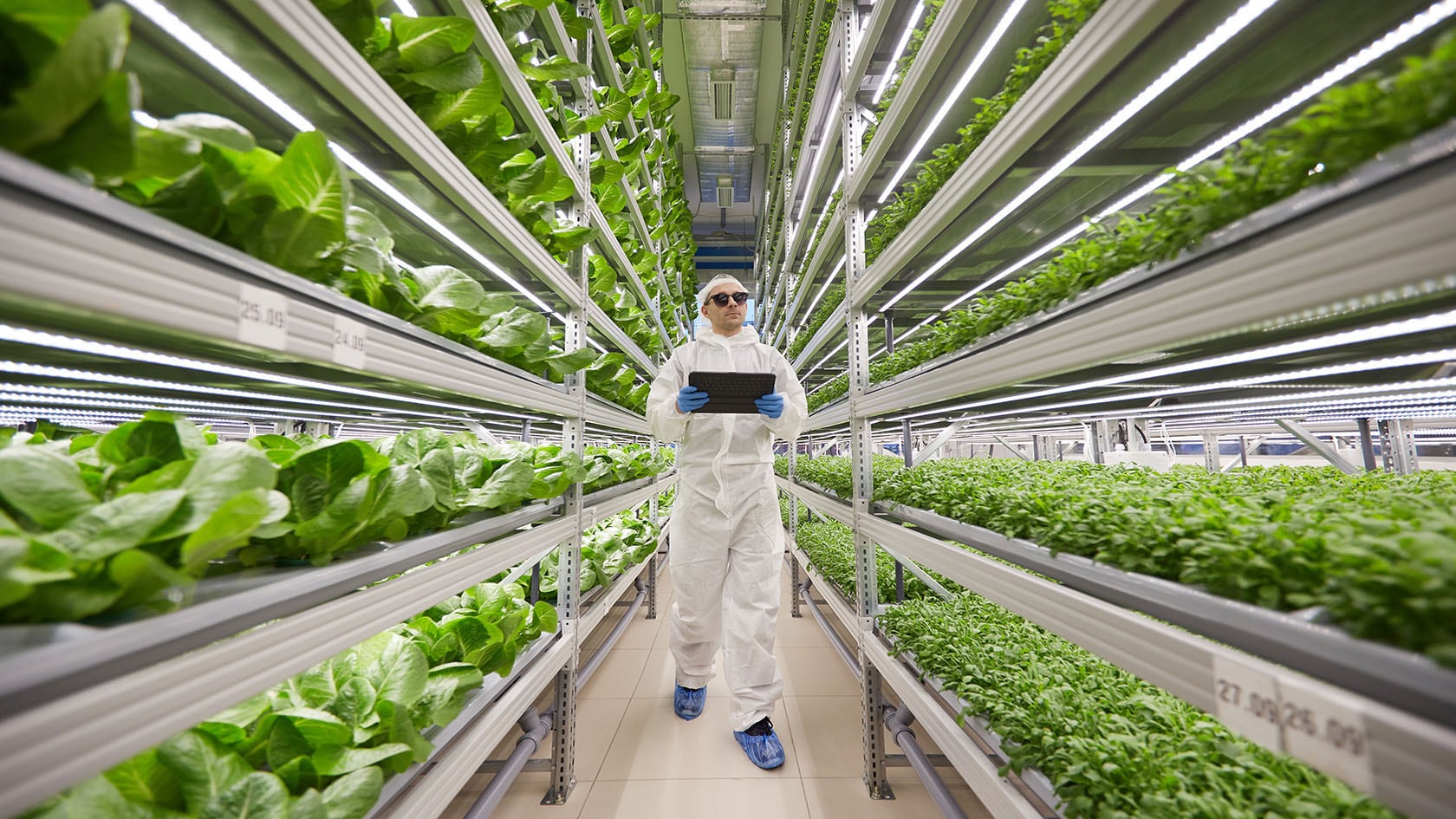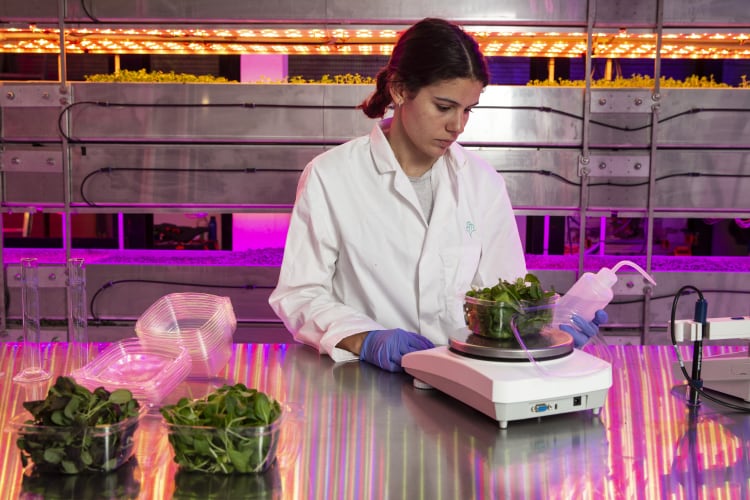Yasai, a vertical farming start-up spun out of ETH Zürich (the Swiss Federal Institute of Technology in Zürich) has entered into a strategic agreement with Helsinki-based iFarm and Netherlands-based Logiqs to help it establish Zürich’s first vertical farm.
The 673 square metre pilot facility will produce 20 tonnes of fresh herbs per year. The partners hope to scale up the Swiss project and expand across the globe.
Mark Essam Zahran, co-founder Yasai, said the project will not just be limited to the testing and fine-tuning of state-of-the-art innovative solutions. “We expect to lay the groundwork for large-scale industrial vertical farming in smart cities and showcase the incredible benefits of a circular economy,” he said.
“A plantation in the largest Swiss city, one of the most expensive cities in the world, will help us assess the economic prospects and give other European cities an example of how to produce an abundant yield without harming the planet, plants, and people.”
iFarm will supply the nutrient solution management system, climate control equipment, and the Growtune software platform which enables flow chart implementation and control over production conditions and processes. iFarm has developed automated vertical farm management technologies that allow salads, spicy herbs, berries and vegetables to be grown quickly in the urban environment.
It is in the process of contructing 11 industrial farms in Finland, Russia and Kazakhstan with a total planting area of more than 12,000 square metres.
Rising demand for sustainable agriculture
iFarm’s Europe CEO Kirill Zelenski told FoodNavigator vertical farming offers a solution to the growing demand for more environmentally-friendly ways of producing fruits and vegetables.
“In the future most people will live in urban settlements. By 2050 60% will live in cities, according to UN data, which will require densification of food production in the future if we want to sustain humanity as a species. In this situation, the role of vertical farming will only increase,” he said.
Switzerland, meanwhile, imports 48% of its fresh vegetables, he said, a fact that brings limitations in terms of taste and diversity.
“Companies are focusing a lot on transportability rather than quality, and diversity of fresh food is very limited in supermarkets,” he told us. Automated vertical farm management technologies that allow salads, spicy herbs, berries and vegetables to be grown quickly in the urban environment, are therefore a potential solution.
“We see demand for local, sustainably grown, and pesticide-free food. And what we can observe is a demand increase for e.g. scale and produce, especially flavoured herbs. Vertical farming can serve this demand perfectly. This project allows us to concentrate on quality rather than transportability.”
The vertical farming market size surpassed US$3 billion in 2018 and will exhibit a compound annual growth rate of over 27% from 2019 to 2026, according to Global Market Insights.
It says the method of cultivating various types of produce in vertically arranged layers, in unused vertical spaces of warehouses, skyscrapers, shipping containers enables allows companies to meet their Corporate Social Responsibility (CSR) goals through sustainable agricultural practices.
Vertical farming also has the ability to produce crops all year round in a controlled environment. Growers can also increase the yield by adjusting the amount of carbon and nutrients the plants receive.
Food security solution
Vertical farming has been particularly embraced in areas where local food production is a top priority. Singapore, for example, a small nation with little arable land that imports 90% of its food, has announced new measures to accelerate local food production by transforming car park rooftops in public housing estates into urban farms.
In 2019, the Singaporean government set up the “30 by 30” goal, aiming to make the country 30% self-sufficient by 2030 by taking advantage of new food production technologies, such as vertical farming and aquaculture.
However, a disadvantage of indoor farming and aeroponics are high energy costs. The Financial Times has reported, for example, that “despite the excitement, the sector is littered with bankruptcies because of the high costs of initial investment into the facilities as well as expensive running costs, including energy to power the LED lights and ventilation, as well as labour.”
Zelenski said the partners already plan to expand the pilot project. “Our ambition is to test our concept, prove it and scale it together with the partners,” he told us.
iFarm says its software Growtune has a library of more than 158 plant growth recipes which is continually updated with software algorithms and guides for growers which are specifically created for vertical farms. The Zurich project will focus for the moment on producing basil, mint, coriander, rosemary, rocket, chives, shiso green and mizuna.
“Growth recipes allow you to guarantee the taste of the produce, so all grown greens will be the same and natural delicious from harvest to harvest,” said Zelenski.
Gert-Jan van Staalduinenm, the owner of Logiqs, which will supply automated shelving systems and lights for the vertical farm, added: “The Swiss project opens up interesting prospects for us. We expect a fruitful collaboration with Yasai experts and a beneficial exchange of best practices with iFarm. With our vast experience in implementing automation and logistics systems on farms, we will be able to build a technologically advanced farm in the very heart of Europe.”



